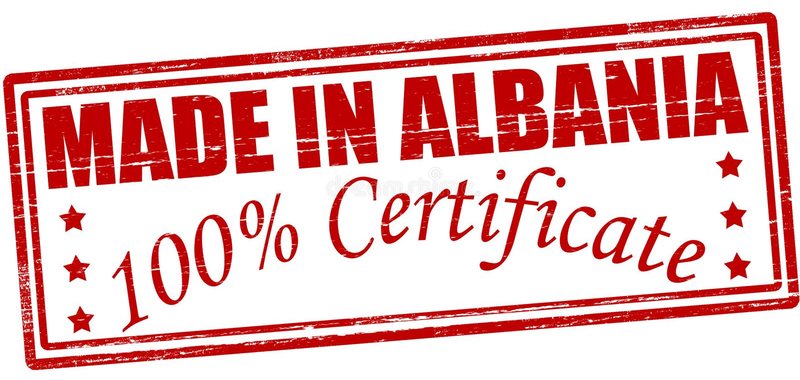Europe: Half of the workers are stressed while a third think about changing jobs!

Half of workers in 10 European countries have reported experiencing daily work-related stress, with a third saying they don't believe there are enough opportunities to achieve their career goals, according to the Manpower Group survey.
A third are considering changing jobs within the next six months and 58% are confident they can find another job that meets their needs. The Global Talent Barometer, released by ManpowerGroup, provides insights into the well-being, job satisfaction and confidence of the workforce in 16 countries, including 10 from Europe.
The survey reveals that workplace stress is widespread across Europe, with an average of 48% of workers in 10 European countries reporting daily stress at work, with levels varying significantly between countries. More than half of workers report experiencing stress in four European countries, with Spain leading at 58%. Sweden and Italy follow closely behind, both with 53%, and Poland with 51%.
Workers in the Netherlands reported the lowest levels of stress at 34%, followed by Norway at 40% and Switzerland at 46%. In three of Europe's other major economies, the UK, Germany and France, stress levels match the European average of 48%.
Despite these significant levels of stress, two-thirds (65%) of workers feel supported in maintaining work-life balance and personal well-being. France reported the lowest level of support at 59%, followed closely by Germany and Switzerland at 60%. In contrast, workers in the Netherlands reported the highest level of perceived support, at 73%.
Most workers in Europe (82%) also feel that the work they do is meaningful and purposeful. Italy has the lowest rate for this indicator, although it remains relatively high at 75%, while Germany and Poland lead with 87%. The Netherlands reported the highest overall workforce well-being at 73%, based on an index derived from four key variables in the chart. In contrast, Italy (60%) and France (61%) recorded the lowest levels of workforce well-being.
When asked, "How likely are you to change jobs on your own initiative in the next six months?" 34% of workers in Europe answered "likely" or "very likely", indicating low job satisfaction among this group. The figure closely matches the European average in most countries, ranging from a low of 28% in Norway to 37% in Poland. While 82% believe their work has meaning and purpose, a third are considering changing jobs and half are victims of work stress.
The sense of job security is relatively strong, with 71% of workers in the 10 European countries certain that they will not be forced to leave their current job in the next six months. However, a quarter (25%) express concern about the loss of jobs, while the remaining 4% are neutral on this issue. Fear of job losses is lowest in Norway, with only 18% of workers expressing concern.
In contrast, three in 10 workers in Spain and Poland (both at 29%) report the highest levels of concern about involuntary job loss. Job search confidence The percentage of people who believe they can find another job that meets their needs within the next six months stands at roughly six in 10 (58%). However, significant disparities exist between countries. Confidence is lowest in Italy (48%), followed by Sweden (49%), while the highest levels are reported in the Netherlands (66%) and the UK (65%).
A third (35%) of respondents feel that there are not enough opportunities for promotion, or movement within their organization to achieve their career goals. This perception is highest in Norway (41%), followed by Switzerland (39%) and Sweden (38%). In contrast, only 27% of workers in the Netherlands see a ceiling in their current workplace, citing insufficient opportunities to achieve their career goals.
Explaining the possible reasons behind this gap, the Insights Team observed that employee satisfaction in the Netherlands was the highest, while Norway ranked the lowest. “We believe the main driver is employer best practices. For example, 42% of workers in the Netherlands reported receiving training in the past six months, compared to 37% of their colleagues in Norway," they explained.
The report is based on data collected from over 12,000 workers. In addition to the 10 European countries, the global average includes knowledge from six others: Australia, Canada, Japan, Mexico, Singapore and the United States.

Kosovo and North Macedonia with common border points - The parties signed agreements in the field of energy, education and free movement
The governments of Kosovo and North Macedonia held a joint meeting in Pristina and signed 3 new cooperation agreements. After the meeting, at the media......

The global offshore wind industry is poised to miss huge targets set by governments!
After a year of canceled projects, broken turbines and abandoned lease sales, the global offshore wind industry has little chance of hitting lofty targets......

World Bank, assistance for consumer protection - Alam: I congratulate BSH for managing inflation and problem loans
The Bank of Albania is in continuous cooperation with the World Bank for the improvement of the regulatory framework of the financial system, especially in......

Competition ready for the Milot-Balldren - Balluku highway: Investments in 2025, priority 2 road corridors connecting the country with the region
The international competition for the construction of the road segment Milot - Balldren, part of the Blue Corridor will be opened soon. While presenting the......

As Global Stocks Fall, Dollar and Bond Yields Hold Near Multi-Month Highs!
The US dollar and bond yields held near multi-month highs today on expectations that the Federal Reserve would slow its pace of easing, while global shares......

Albanian products, towards Asia - Prençe: Good news, but it is not expected to last
The decrease in exports to European countries has caused various traders in Albania to find other places to sell their products. According to data from the......

Croatia raises energy targets for 2030 - The country aims to cover 43% of total consumption through green sources
Croatia increased all the most important targets in the updated National Energy and Climate Plan for the period 2021-2030. Renewable sources in energy......

357 million ALL for the new 110kV cable line - Tirana 1-Zogu i Zi, increasing the electricity transmission capacity
The Transmission System Operator OST has opened the tender for the construction of the 110 kV cable line Tirana 1-Zogu i Zi, as well as the corresponding......


















